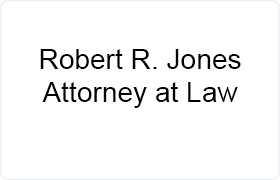 Galveston County, TX Misdemeanor Lawyers
Galveston County, TX Misdemeanor Lawyers
Sponsored Law Firm
-
 x
x

Click For More Info:
-
Robert R. Jones Attorney at Law
3526 E. FM 528 Suite 204 Friendswood, TX 77546» view mapCriminal Defense Expert Representation for Reasonable Rates
If you need representation, call me 24/7.
800-883-8760
Not enough matches for Galveston Misdemeanor lawyer.
Below are all Galveston lawyers.
Lawyers
<
11-20 of 63 matches
Wrongful Death, Products Liability, Personal Injury, Car Accident
Divorce & Family Law, Products Liability, Personal Injury, Medical Malpractice
Civil Rights, Medical Malpractice, Business, Mass Torts, Products Liability
Firearms, Family Law, , Juvenile Law, Car Accident



 Robert Jones Friendswood, TX
Robert Jones Friendswood, TX AboutRobert R. Jones Attorney at Law
AboutRobert R. Jones Attorney at Law Practice AreasSpecializations
Practice AreasSpecializations